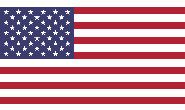Government/Policy

March 4, 2021
Section 232 Tariffs on Steel "Effective": Commerce's Raimondo
Written by Michael Cowden
Biden administration Commerce Secretary Gina Raimondo described Section 232 tariffs on imported steel and aluminum as “effective” on Thursday.
“The data show that those tariffs have been effective,” Secretary Raimondo said in an interview with MSNBC.
![]() Raimondo’s comments are important because trade policies such as Section 232, which Trump rolled out in March 2018, fall under the purview of the U.S. Commerce Department.
Raimondo’s comments are important because trade policies such as Section 232, which Trump rolled out in March 2018, fall under the purview of the U.S. Commerce Department.
Section 232 resulted in tariffs of 25% on imported steel and tariffs of 10% on foreign aluminum.
“What President Biden has said is that we will have a whole of government review of all of these policies and decide what it makes sense to maintain,” she added.
Tariffs as well as more traditional measures such as anti-dumping and countervailing duties are necessary, in particular to keep excess steel and aluminum from China from flooding U.S. markets, Raimondo said.
“They can’t just dump excessive amounts of cheap steel and aluminum into America,” she said. “I would say there is no one tool in our toolbox.”
Raimondo, who previously served as governor of Rhode Island, also emphasized that the U.S. would need to do more to spend on domestic research and development capability, semiconductor manufacturing capacity, and in creating a more skilled U.S. workforce.
“We need to invest in America. Everything I’ve just said (about tariffs) is defense. How about offense?” she asked.
Raimondo’s comments about increasing U.S. semiconductor output comes as a shortage of the material used to make microchips has forced auto plants across North America to halt operations. The issue has also spread into other steel-intensive sectors such as home appliances.
Raimondo was sworn in as the 40th U.S. Commerce Secretary on Wednesday, March 3, by Vice President Kamala Harris, replacing outgoing Secretary Wilbur Ross. She was overwhelmingly approved for the role in a bi-partisan 84-15 vote in the U.S. Senate.
The two primary lobbying groups for the U.S. steel industry, the Steel Manufacturers Association (SMA) and the American Iron and Steel Institute (AISI), cheered the development.
“SMA applauds her job-centric focus on trade policy, and her commitment to enforcing U.S. trade laws and fighting unfair trade practices,” SMA President Philip K. Bell said in an email to SMU on Thursday.
“It is also clear that she understands the importance and success of the S232 national security tariffs as a vital tool in America’s trade toolbox as we combat global excess steel capacity, subsidies and dumping,” Bell said.
The AISI sounded a similar note: “We appreciate her commitment to addressing the issues facing the American steel industry, including vigorously enforcing the U.S. trade remedy laws and remaining aggressive in combating unfair trade practices by China and other trading partners,” AISI President Kevin Dempsey said in a statement.
“A critical part of the response to the global steel overcapacity crisis must be the full enforcement of the Section 232 remedies on steel products, including action to ensure that the Section 232 exclusion process does not inadvertently allow exclusion of products that are made by domestic steel producers,” Dempsey said.
The Biden administration’s apparent support for Section 232 tariffs and quotas comes even as U.S. steel prices continued to test new all-time highs.
Steel Market Update’s benchmark average hot-rolled coil price stands at $1,240 per ton ($62/cwt), up 25.9% from $985 at the beginning of the year and up 181.8% from a 2020 low of $440 per ton, recorded in August.
The prior high, before the sharp runup this year, was $1,070 per ton in July 2008, just ahead of the financial crisis.
By Michael Cowden, Michael@SteelMarketUpdate.com







